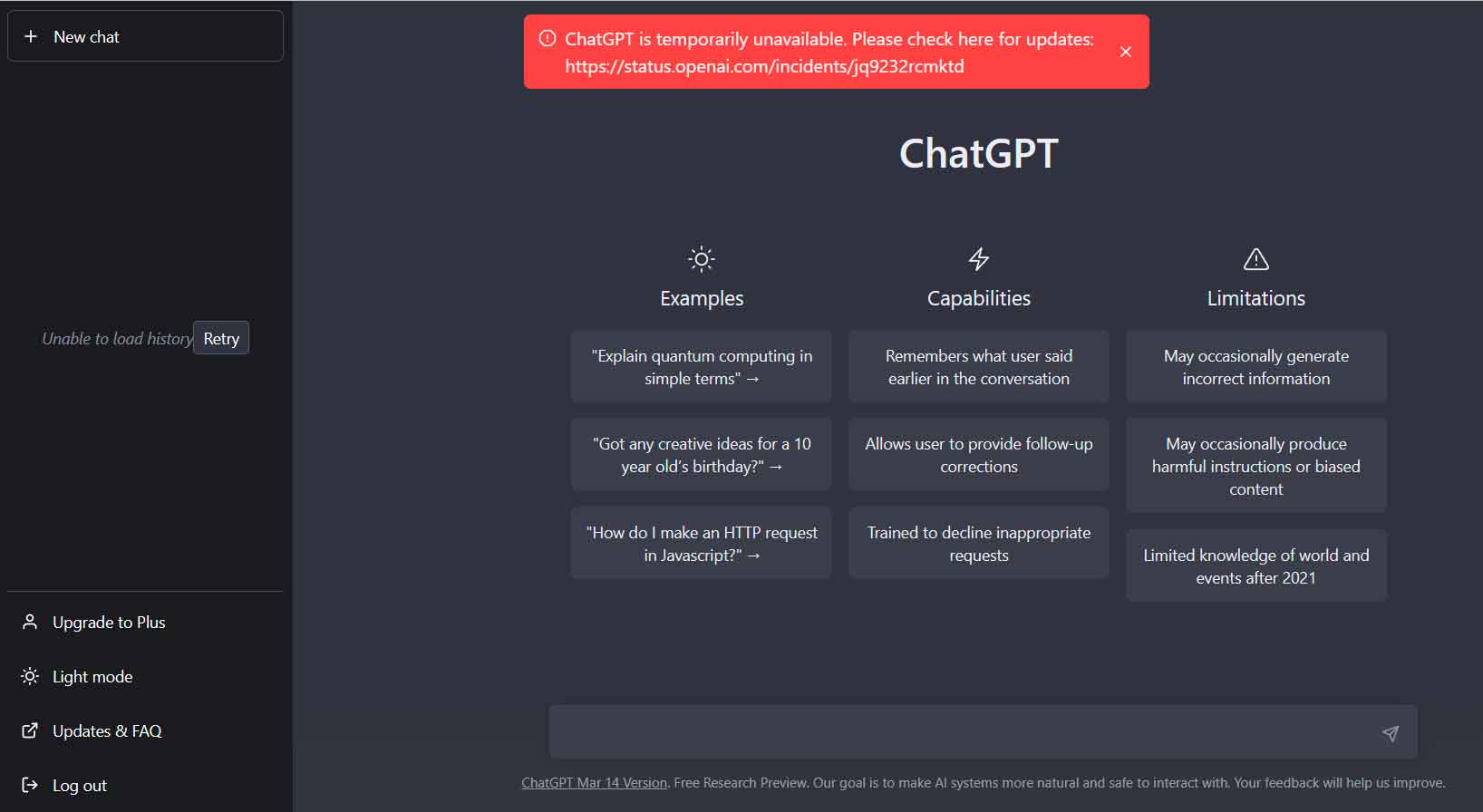
For about half an hour, and at the time of writing this news, ChatGPT is down. It is not a problem that is limited to only some users, but a complete failure of the service, as we can see on its status page. In addition, and as many users are reporting on social networks, it seems that the problem is spreading also to the subscription modality, ChatGPT Plus, and to the recently announced ChatGPT API.
It is possible that in the time it takes to finish writing this news the problem will be resolved, although it would not be the first time that we have seen a drop in hours in an online service. Unfortunately, and although unfortunately we tend to forget it, the technical complexity of the infrastructures on which the services are supported is an open door to possible failures. And yes, it is true that in some cases their scope is quite limited, but in others, they can cause falls for hours or even days.
So I want to make it clear that this is not a criticism of a service crash. Today it was ChatGPT, tomorrow it could be anyone from Google, Microsoft, Meta… and in all cases, first for their own interest but also for their users, history has taught us that these companies spare no means to solve this types of incidents as quickly as possible, and also that they work preventively to reduce their risk (with greater investment in some services than in others, yes).
I think, yes, that it is important that the fall of ChatGPT lead to reflection about the artificial intelligence boom of these months, and its rapid landing in many activities that, until now, did not depend on this type of services and platforms. The fact that the free OpenAI chatbot becomes unavailable for a few minutes, a few hours or even a few days is not a problem, and in fact the company reminds that it is currently in preview mode, so rely on this tool for any homework is risky. Controlled, but risk.
What we should think about, yes, is what could happen if these artificial intelligence models begin to be used exclusively for functions of all kinds, from customer service to the automation of notifications of any kind. All of us (or the vast majority) have experienced a drop in our email service, and we already know the incidence that this can have, and now imagine the potential effects of the fall of an AI on which important functions depend.
Personally, and I have already made it clear in many of my posts, I think that we are living a really exciting time when it comes to artificial intelligence, which can contribute a lot and very good. However, this seems to me the best moment to remember that entrusting everything to her, without redundant systems and without a plan B, can have some truly notorious effects if an incident occurs. And I’m sure that if we ask ChatGPT (although it’s not possible right now) for his opinion on this point, he will totally agree. What I have done has been to ask Claude, through Poe, who has given me a list of recommendations, from which I extract the following:
«Non-AI-based alternatives. Have manual or rule-based processes as a fallback if the AI fails. So you can revert to a simpler approach in case of errors.«




